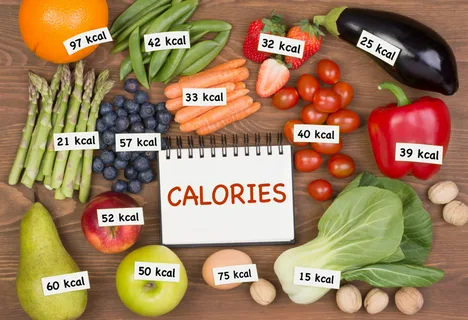Introduction to Calories and Body Fat
Before delving into the specifics, let’s establish some foundational knowledge. Calories are units of energy derived from the food and beverages we consume. When we consume more calories than our bodies need for energy expenditure, the excess is stored as body fat. Conversely, when we consume fewer calories than our bodies require, we create a calorie deficit, leading to fat loss.
What is a Calorie Deficit?
A calorie deficit occurs when you consume fewer calories than your body expends over a certain period. This deficit forces your body to tap into its fat stores for energy, leading to weight loss. To lose one pound of body fat, you need to create a calorie deficit of approximately 3,500 calories.
How Many Calories Are in a Pound of Body Fat?
As mentioned earlier, to lose one pound of body fat, you need to create a calorie deficit of 3,500 calories. This means that for every 3,500 calories you consume fewer than your body needs, you can expect to lose approximately one pound of body fat. However, it’s essential to note that individual factors such as metabolism, body composition, and activity level can influence the rate of fat loss.
Factors Affecting Caloric Expenditure and Fat Loss
Several factors can affect how many calories your body burns and how quickly you lose fat:
- Basal Metabolic Rate (BMR): The number of calories your body needs to maintain basic physiological functions while at rest.
- Physical Activity: The calories burned through exercise and daily activities.
- Age, Gender, and Genetics: These factors can influence metabolic rate and fat storage.
- Hormones and Health Conditions: Certain medical conditions and hormonal imbalances can affect metabolism and weight regulation.
Strategies for Achieving a Calorie Deficit:
To create a calorie deficit and promote fat loss, consider implementing the following strategies:
Track your calorie intake and expenditure using a food diary or mobile app.
Set realistic and achievable weight loss goals.
Incorporate a combination of cardiovascular exercise and strength training into your fitness routine.
Choose nutrient-dense, whole foods to support overall health and satiety.
Practice mindful eating and listen to your body’s hunger and fullness cues.
Stay hydrated and prioritize adequate sleep for optimal metabolic function.
Frequently Asked Questions (FAQs)
Is it safe to create a large calorie deficit for rapid weight loss?
Rapid weight loss through extreme calorie restriction can be harmful and unsustainable. It’s best to aim for a gradual and steady rate of fat loss to minimize muscle loss and maintain metabolic health.
How long does it take to lose one pound of body fat?
The time it takes to lose one pound of body fat varies depending on factors such as calorie intake, activity level, and individual metabolism. On average, a deficit of 500-1000 calories per day can lead to a weight loss of 1-2 pounds per week.
Are all calories created equal when it comes to weight loss?
While calorie balance is crucial for weight loss, the quality of calories matters for overall health. Choosing nutrient-dense foods that provide essential vitamins, minerals, and macronutrients can support weight loss and promote overall well-being.
Can you lose weight without creating a calorie deficit?
No, weight loss ultimately requires a calorie deficit, whether achieved through consuming fewer calories, increasing physical activity, or a combination of both.
Does muscle mass affect the rate of fat loss?
Yes, maintaining or increasing muscle mass through strength training can boost metabolism and facilitate fat loss, as muscle tissue burns more calories at rest than fat tissue.
How can I determine my daily calorie needs for weight loss?
You can use online calculators or consult with a healthcare professional to estimate your basal metabolic rate (BMR) and determine an appropriate calorie deficit based on your weight loss goals and activity level.





